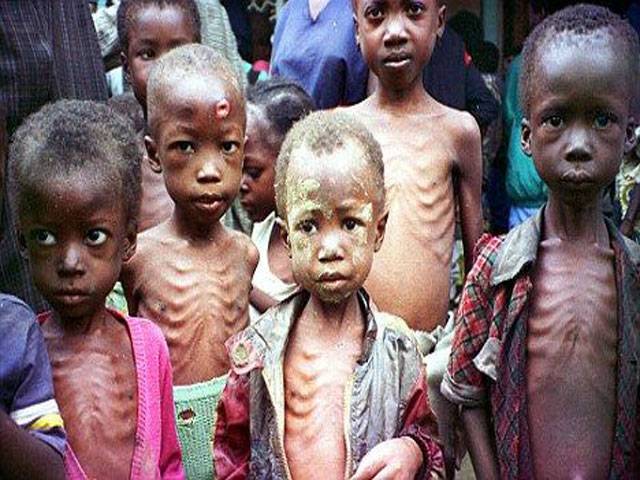Magdalena Mis
African children will account for more than 40 percent of the world’s poorest people in 2030, almost double the current share, unless more is done to improve education and healthcare, a UK-based thinktank said on Thursday.
One in five children in sub-Saharan Africa, or nearly 148 million, will be living on less than $1.90 a day in 2030, the deadline set by the world leaders to eliminate extreme poverty, the Overseas Development Institute (ODI) said in a report.
“This prospect of 40 percent plus of world poverty in 2030 being African children is one that I think should focus the minds of the international community,” said Kevin Watkins, ODI executive director and co-author of the report.
“We’re talking about getting kids into school (and) tackling the most extreme forms of poverty. This is doable,” he told the Thomson Reuters Foundation by phone from Italy. By 2030, ODI estimates that 88 percent of all children living on $1.90 a day will be in sub-Saharan Africa, up from some 50 percent today.
To reduce poverty, extreme inequality and change demographic patterns in sub-Saharan Africa, investment was needed in cash transfers, education and healthcare, ODI said.
Education, in particular, was “absolutely central” to reducing poverty in the region, Watkins said.
“It’s through education (people) gain skills, girls are more likely to go into marriage later and women secure confidence to demand healthcare and reproductive care,” he said.
Nigeria was the “hotspot” for the progress on the continent, Watkins said, noting that Africa’s most populous country with 188 million people has the largest number of children out of school and some of the biggest gender gaps in education.
“Unless the picture improves in Nigeria, it’s almost guaranteed that sub-Saharan Africa as a region will be pulled off track,” Watkins said.
Despite the challenges, sub-Saharan Africa has chalked up many economic gains over the past few years and recorded significant progress in child survival, Watkins said.
“This is now a part of the world that is in the fast lane of economic growth. There are more democracies in Africa than have ever been,” he added.
However, African leaders need to invest in the youth and end harmful practices such as child marriage. “Now is the time for African leaders to step up on the plate on these gender inequalities that are preventing young girls and young women from exercising choice and realising their potential,” Watkins said.
In sub-Saharan Africa, more than a tenth of girls are married by 15, and four in 10 are married by 18, according to the Population Council, a US-based non-profit organisation.–Reuters






